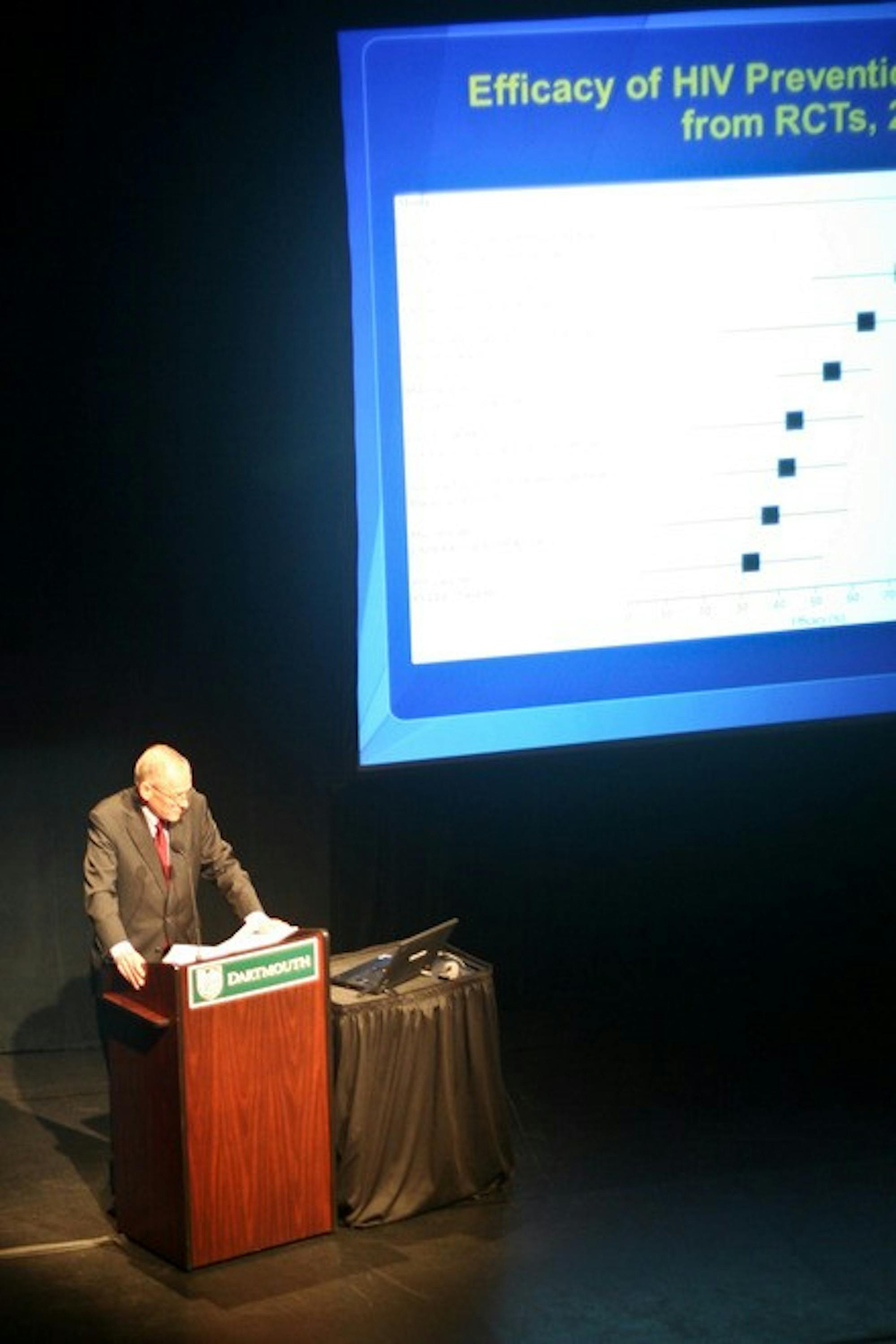The lecture series is paired with the government course "America and the World: Contemporary Issues in U.S. Foreign Policy," in which students study various aspects of U.S. foreign policy and includes readings and supplemental lectures by visiting experts, according to government professor Benjamin Valentino, who is teaching the course.
De Cock stressed that the phenomenon of globalization has had a profound effect on global health.
"With globalization, we have the globalization of public health risk," De Cock said. "Risk is no longer contained within the borders of one country."
He cited immigration, travel, urbanization and the geographic diffusion of cultural practices as factors that are changing the landscape of public health.
Not only do diseases travel around the world faster as was the case of SARS or H1N1 but word of outbreaks can reach authorities faster, De Cock said. He gave the example of a fellow CDC physician who received a text message from an epidemiologist in the Democratic Republic of the Congo to warn him of an Ebola outbreak. Before the widespread use of technology like cell phones, communication about an outbreak would have taken much longer, he said.
De Cock pointed out three of the most dangerous infectious diseases in the world HIV/AIDS, tuberculosis and malaria as issues that have seen improvement but still need attention.
"AIDS remains the leading infectious disease challenge," De Cock said. "Overall there's been tremendous progress."
He said that tuberculosis is finally on the decline, though it remains a slow decline. Malaria has also experienced a drop around the world due to measures including pesticide-embedded bed nets, he said.
Diseases such as cholera, which appeared in post-earthquake Haiti, are important because of what they indicate about a country's infrastructure, De Cock said.
"There are some diseases that are important because they show the fragility of our systems," De Cock said. "It's a sign there's a fundamental underlying problem with systems."
Despite the attention dedicated to infectious diseases, De Cock emphasized that most deaths in the world are a result of more common illnesses. Increasingly, people in lower and middle-income countries are afflicted with ailments such heart disease and cancer. Public health institutions need to begin to address these noncommunicable diseases, he said.
De Cock linked his lecture to the theme of American foreign policy by emphasizing the porous borders of global health in the modern era. Controlling disease in other parts of the world is crucial because, with globalization, the disease might find its way to American shores.
"SARS was extremely severe but not all that widespread," De Cock said. "In contrast, H1N1 was very widespread but fortunately not severe. We can't rely on these two factors always being separate."
Valentino said that the lecture helped students understand the scope of problems in global health. He said this opening lecture focused on global health because of general student interest.
The class, which had to be capped despite widespread undergraduate interest, aims to give students the "opportunity to talk face-to-face with people directly involved in making foreign policy," he said.
The class is modeled after a 1950s "Great Issues" course that was once mandatory for Dartmouth seniors. Alumni described the course as a "class bonding experience" and remember it fondly, Valentino said. Leading Voices is held over sophomore summer to recreate the sense of a class bond, according to Valentino.
Lisa Adams, assistant professor at the Geisel School of Medicine and coordinator for the Dickey Center for International Understanding's Global Health Initiative, introduced De Cock's lecture. The topic of public health is a strong beginning to the series on U.S. foreign policy, Adams said.
"Global health is such a key issue in that it touches everything and everyone," she said. "It's the perfect topic that people can relate to."
Adams described the Leading Voices class as a "remarkable" opportunity for students.
Adrian Ferrari '14, who is enrolled in the complementary class, said that the lecture "set the stage" for the rest of the series by discussing the core issue of the use of American resources.
New York Times columnist Nicholas Kristof will be the next Leading Voices speaker, discussing human rights on July 5.




